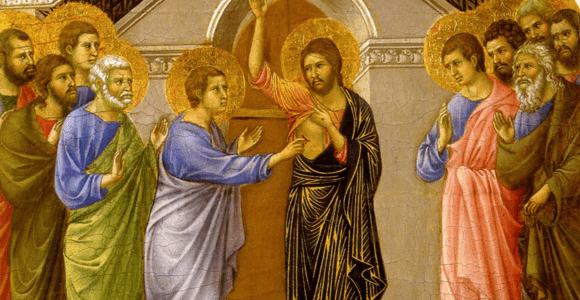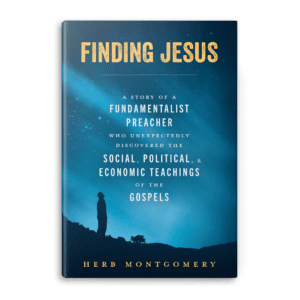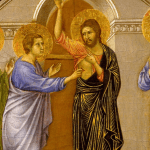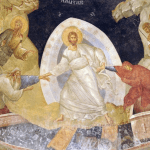
In the context of that which is life giving, we can also consider this phrase descriptively. This should also give us pause. If Jesus is just describing what these disciples who will tell the initial Jesus story will mean for others, and why it is so important for them to get that story right, then this passage makes more sense for me but doesn’t feel much better. There are Christians today who are still binding and loosing, forgiving and not forgiving. Sometimes they represent a God of love in life-giving ways, and at other times they represent God in very death-dealing ways.
Welcome Readers! Please subscribe to Social Jesus Here.
(Read this series from the beginning at Part 1 and Part 2.)
As just one example, many Christians still harmfully interpret the handful of passages in the Bible that have been used against LGBTQ people. Countless LGBTQ young people have been raised in Christian homes, taught to be ashamed and scared of what they’re encouraged to believe is “wrong” with them. They come to believe they are sinful, broken, or have an orientation that is a by-product of sin rather than an example of the beautiful diversity and variation of humanity. Christians have bound these youth with feelings of inferiority and the fear of rejection if they share their truth with their families. Parents, too, are still encouraged and even commanded to reject their children simply because of whom they are attracted to or love.
Whether I like it or not, whether I am comfortable with it or not, the power to loose or bind, to make someone feel forgiven or not forgiven, accepted or rejected, included or marginalized, is intrinsically in the hands of every Jesus follower. How we take on the name of Jesus and how we represent Jesus and relate to the people around us matters. It matters whether we are Jesus followers or not, but it matters even more when we are. This should give us pause and inspire us to use gentle care when relating to everyone. We will make mistakes, for sure, but when we do err, we should be erring on the side of compassion.
This week’s reading is also a good reminder that all theology has political, economic, and social functions. As we assess any particular theology, it’s helpful to understand the political, economic and social implications that rise from it and to also know that all theologies come with underlying biases and motives at work. Some motives are more obvious, and others less so. Regardless, all theologies are political, with economic implications and social outcomes.
The last part of our reading this week is about Thomas. The scholarly evidence points to this story being a late tradition to the text. Thomas’ reference to Jesus as God is also unique in the four canonical gospels. No other disciple refers to Jesus as “God” in any of the gospel narratives. This story therefore serves to establish the authority of Thomas for the Christian communities that grew up around his apostleship. That authority would have been important for later Gnostic Christians and others reading the gospel of Thomas.
This week, let’s take this week’s passage as our guide and choose to relate to others in ways that are liberating, not oppressive, loosing and binding. Let’s follow Jesus in whatever way is life-giving for the given moment and situation. And remember, that when we claim to follow Jesus, for better or for worse, we will be viewed as representing that Jesus and we can in those moments hold in our hands life or death. Let’s be sources of healing, and life, and justice and inclusion.
 Herb’s new book, Finding Jesus: A story of a fundamentalist preacher who unexpectedly discovered the social, political, and economic teachings of the Gospels, is now available at Renewed Heart Ministries.
Herb’s new book, Finding Jesus: A story of a fundamentalist preacher who unexpectedly discovered the social, political, and economic teachings of the Gospels, is now available at Renewed Heart Ministries.














